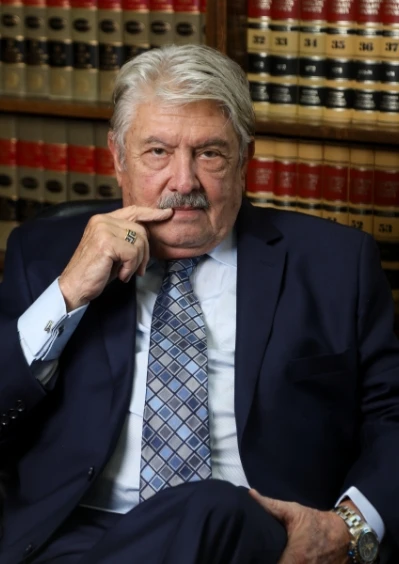Three Tips for Moving Out of the Family Home During Divorce
 One of the most difficult things about divorce in the State of California is moving out of the family home. At least one spouse must leave the comfort of this residence, and this could be particularly challenging for those who have lived at the house for decades. If you move out during divorce, there are a few things you may want to keep in mind.
One of the most difficult things about divorce in the State of California is moving out of the family home. At least one spouse must leave the comfort of this residence, and this could be particularly challenging for those who have lived at the house for decades. If you move out during divorce, there are a few things you may want to keep in mind.
The Knez Law Group, LLP can guide you through this process with confidence and efficiency. Our experienced Riverside divorce attorneys have helped numerous spouses with similar issues in the past. Matthew J. Knez and Andrew J. Knez have specific experience with divorce-related issues, and these California divorce lawyers can help you strive for positive outcomes. In particular, Matthew J. Knez once wrote an article for the well-respected publication Law Review on “move-away” cases in California.
Remember Your Move-Out Date
Your “date of separation” may be more important than you realize in California. In most cases, the date of separation is when one spouse moves out of the family home. If you choose to pack up your bags and leave, remember the exact date. Document your move if possible, as you may need to prove that you moved out on a specific date.
Why is the date of separation so important? In California, the assets that you acquire after your date of separation are yours – and yours alone. For example, you might move out and use your next paycheck to purchase stocks in a company. If the value of these stocks suddenly skyrockets, proving that you acquired them after your date of separation may become crucial.
Try Not to Move Too Far Away if You Have Children
If you are aiming for joint physical custody, you might want to relocate somewhere close to your family home. California family courts consider many factors during custody battles, and one of these factors is the distance between parents’ homes. If you move too far away, a family law judge may decide that traveling back and forth is not in the child’s best interests. According to the Judicial Branch of California, the distance between these homes may become a “major factor.”
Consider the Cost of the Family Home if you are a Homeowner
If you and your spouse own the family home, then consider how the mortgage and maintenance will be paid. Consider if you were kicked-out of the family home. The foregoing will factor into consideration as to whether either spouse is entitled to Epstein credits and Watts charges. Epstein credits refers to reimbursement under Family Code section 2626 for community debts paid with separate property. Watts charges refers to one-half of the fair rental value of community property credited to the spouse excluded from the community property.
Consider Downsizing
Finally, you might want to consider downsizing after moving out. Divorce can bring all kinds of financial pressures, and it might no longer make sense to maintain a residence identical to your family home. By downsizing, you can minimize the effect of lost dual income, alimony obligations, child support, property division, and much more.
Contact The Knez Law Group, LLP, to Work with an Established Divorce Law Firm
Although moving out of the family home might seem challenging, this process is often easier when you work with an established divorce law firm in Riverside, California. Choose The Knez Law Group, LLP – and team up with Riverside divorce lawyers who understand the challenges of relocating at the end of your marriage. Our experienced divorce attorneys can help you start a new chapter without unnecessary financial or legal issues. Schedule a free consultation today at 951-742-7681 to get started with a move-out plan.

For over forty-three years, Fred Knez has been representing individuals and corporations in serious personal injury and business litigation, both as a plaintiff and defendant. Following his service in the Army during the Vietnam War as a medic and medical laboratory technician, Fred attended the University of Colorado. He then worked as an insurance adjuster for Allstate Insurance and as a private investigator before graduating from law school. Fred was admitted to practice law in California in 1980, the U.S. District Court in 1981, the Ninth Circuit U.S. Court of Appeals in 1983, and the U.S. Supreme Court in 1984. Learn more here.
